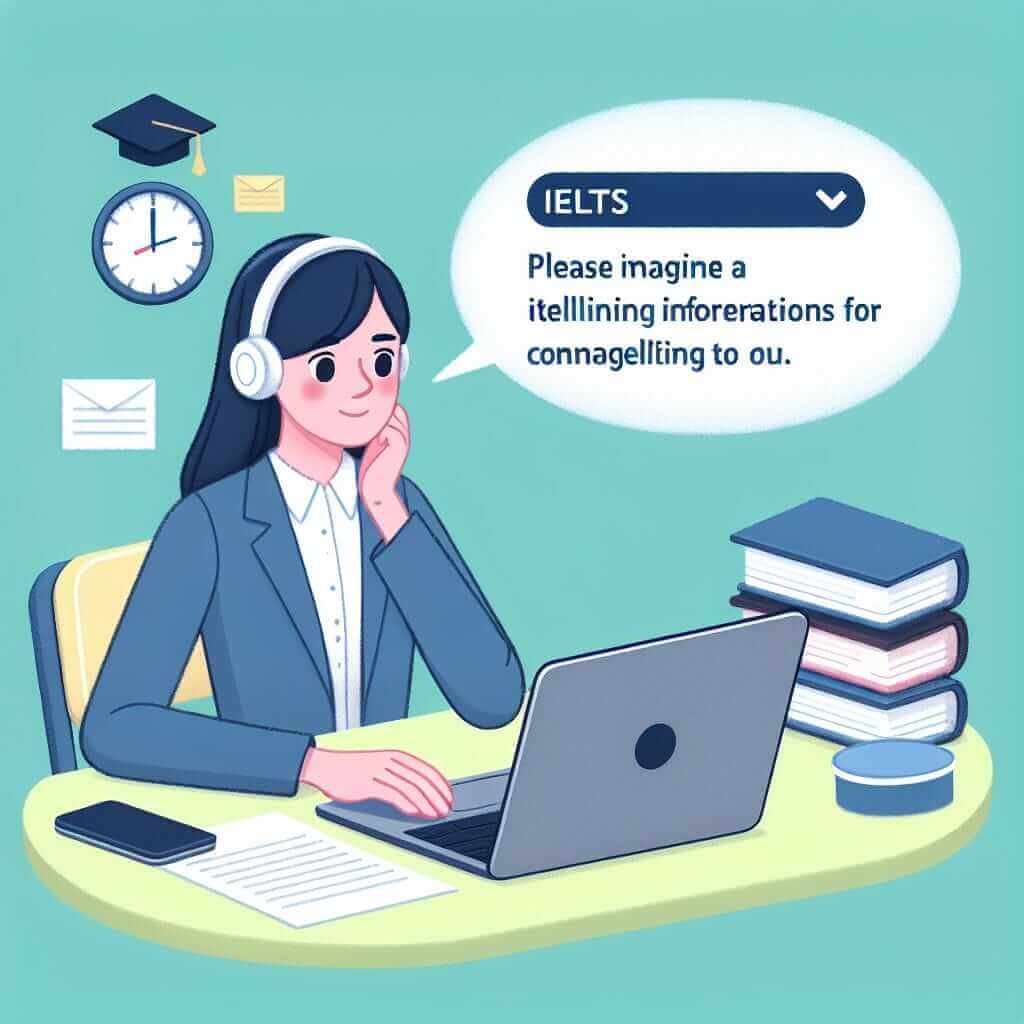As an IELTS instructor with over two decades of experience, I understand the anxieties surrounding the IELTS General Writing Task 1, particularly the email writing task. While it might seem daunting, mastering this section is entirely achievable with a strategic approach and consistent practice. This guide will delve into the nuances of crafting a high-scoring IELTS email, providing you with the tools and insights needed to excel.
Understanding the Significance of Email Writing in IELTS General Training
The IELTS General Training Writing Task 1 evaluates your ability to communicate effectively in everyday, practical situations. Emails are a ubiquitous form of communication, making this task highly relevant for those planning to work or study in an English-speaking environment. A well-structured and articulate email demonstrates your ability to convey information clearly, making a positive impression on the examiner.
Deconstructing the IELTS Email: A Step-by-Step Guide
Writing an effective IELTS email involves a structured approach, focusing on clarity, conciseness, and appropriate tone. Here’s a breakdown of the key elements:
1. Analyze the Prompt Carefully
Begin by thoroughly understanding the email prompt. Identify the purpose of your email, the target recipient, and the key points you need to address. Pay close attention to the specified word limit (150 words minimum) and ensure you adhere to it.
2. Structure Your Email Logically
A well-organized email is crucial for readability and comprehension. Follow this standard structure:
-
Subject Line: Keep it concise and relevant to the email’s purpose.
Example: Request for Information Regarding Upcoming Workshop -
Salutation: Use an appropriate greeting based on your familiarity with the recipient.
Formal: Dear Mr./Ms./Dr. [Last Name]
Semi-formal: Dear [First Name]
Informal: Hi [First Name] -
Opening Paragraph: Briefly introduce yourself (if necessary) and state the primary purpose of your email.
-
Body Paragraph(s): Develop the main points outlined in the prompt. Use clear and concise language, dividing the information into separate paragraphs for better readability.
-
Closing Paragraph: Summarize your request or message and express any necessary expectations.
-
Closing: End with an appropriate closing phrase and your full name.
Formal: Sincerely/Yours faithfully, [Your Full Name]
Semi-formal: Best regards/Kind regards, [Your Full Name]
Informal: Best/Regards, [Your Name]
3. Employ Appropriate Language and Tone
The tone of your email should align with the purpose and the recipient. Maintain a formal or semi-formal tone for most IELTS emails, avoiding slang, contractions (e.g., can’t, won’t), or overly casual language.
4. Proofread for Grammar and Spelling
Grammatical accuracy and correct spelling are crucial for achieving a high band score. Always allocate time to carefully proofread your email before submission.
Illustrative Example from IELTS General Training
Let’s examine a sample IELTS General Training email prompt:
You are working on a project with a colleague, and you need to ask them for some information. Write an email to your colleague. In your email, you should:
- explain the information you need
-
- say why you need it*
-
- suggest a time to meet to discuss this*
Sample Email Response:
Subject: Project Update: Request for Information
Dear [Colleague’s Name],
I hope this email finds you well.
I’m writing to request some information regarding your recent findings on [mention specific area of the project]. As you know, we’re approaching the deadline for [mention project milestone], and this information is crucial for [explain how the information is essential].
Would you be available for a brief meeting sometime next week to discuss your findings in more detail? Please let me know what time works best for you.
Thank you for your assistance.
Best regards,
[Your Name]
 IELTS Email Example
IELTS Email Example
Tips to Elevate Your IELTS Email Writing
- Practice Regularly: Consistent practice is key. Familiarize yourself with different email prompts and try to write emails on diverse topics.
- Master the Formal Register: While informal emails are common in daily life, IELTS leans towards formal or semi-formal writing styles. Familiarize yourself with the nuances of formal language.
- Use Linking Words Effectively: Linking words and phrases (e.g., however, therefore, in addition) enhance the flow and coherence of your writing.
- Pay Attention to Punctuation: Accurate punctuation is essential for conveying meaning and clarity.
- Seek Feedback: Have your emails reviewed by an experienced IELTS instructor or tutor to identify areas for improvement.
Conclusion
Mastering the art of writing effective emails for the IELTS General Training Writing Task 1 requires a focused approach, understanding of the task requirements, and consistent practice. By incorporating the strategies outlined in this guide and dedicating sufficient time to hone your skills, you can confidently approach this section and achieve your desired band score.


